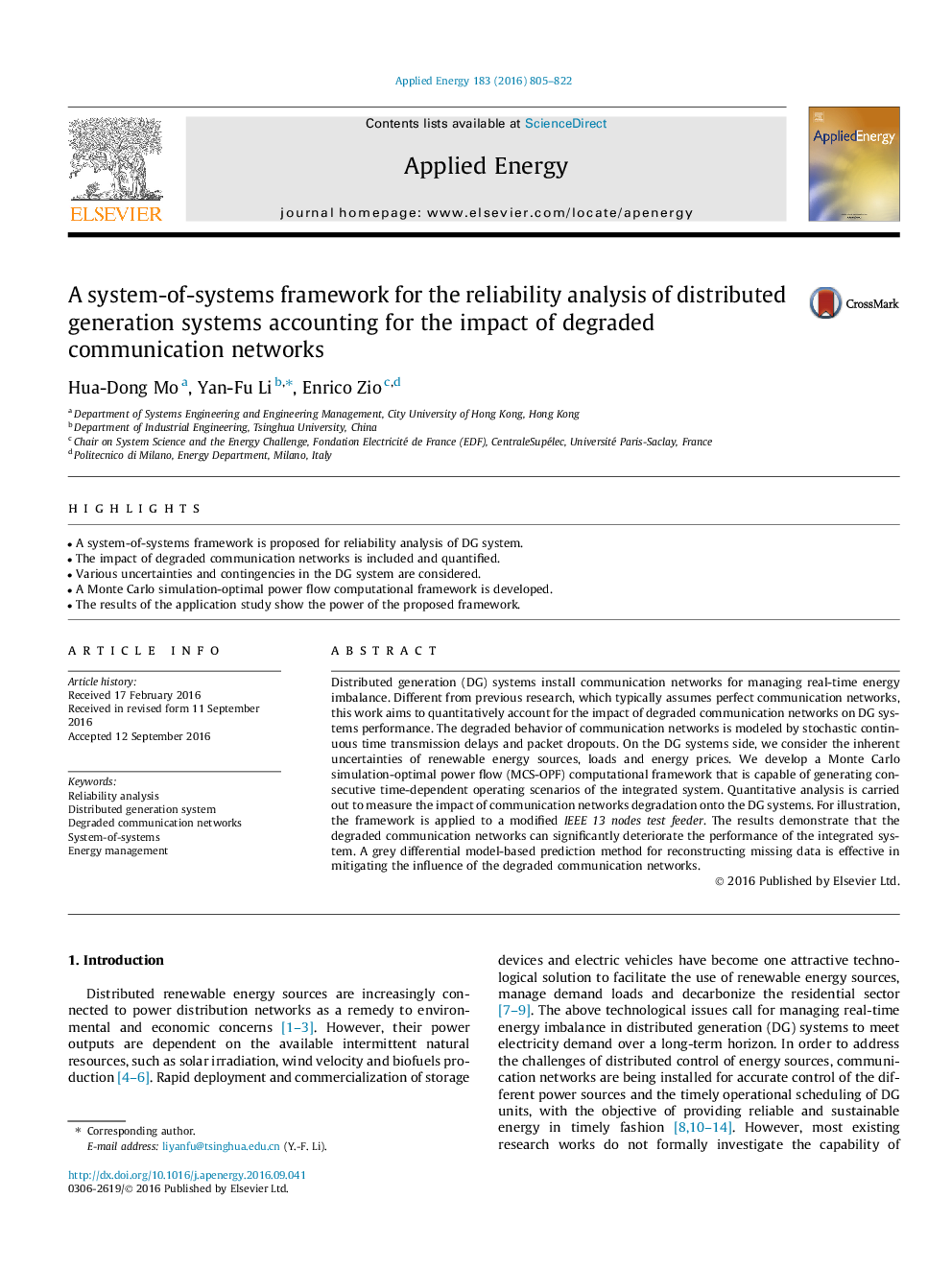| Article ID | Journal | Published Year | Pages | File Type |
|---|---|---|---|---|
| 4916616 | Applied Energy | 2016 | 18 Pages |
Abstract
Distributed generation (DG) systems install communication networks for managing real-time energy imbalance. Different from previous research, which typically assumes perfect communication networks, this work aims to quantitatively account for the impact of degraded communication networks on DG systems performance. The degraded behavior of communication networks is modeled by stochastic continuous time transmission delays and packet dropouts. On the DG systems side, we consider the inherent uncertainties of renewable energy sources, loads and energy prices. We develop a Monte Carlo simulation-optimal power flow (MCS-OPF) computational framework that is capable of generating consecutive time-dependent operating scenarios of the integrated system. Quantitative analysis is carried out to measure the impact of communication networks degradation onto the DG systems. For illustration, the framework is applied to a modified IEEE 13 nodes test feeder. The results demonstrate that the degraded communication networks can significantly deteriorate the performance of the integrated system. A grey differential model-based prediction method for reconstructing missing data is effective in mitigating the influence of the degraded communication networks.
Related Topics
Physical Sciences and Engineering
Energy
Energy Engineering and Power Technology
Authors
Hua-Dong Mo, Yan-Fu Li, Enrico Zio,
